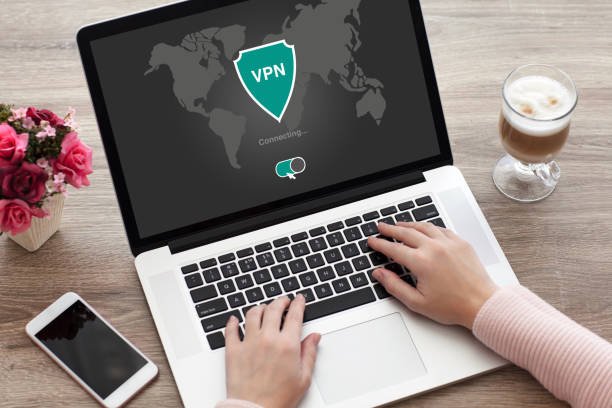Click here to buy secure, speedy, and reliable Web hosting, Cloud hosting, Agency hosting, VPS hosting, Website builder, Business email, Reach email marketing at 20% discount from our Gold Partner Hostinger You can also read 12 Top Reasons to Choose Hostinger’s Best Web Hosting
Millions reach for “free VPN” apps when they want privacy, streaming access, or a quick way to hide an IP. The problem: a new, large-scale analysis shows that free VPNs put your data at risk, with many of them failing to deliver real privacy. Researchers found that these apps often request excessive permissions, ship with insecure or outdated libraries, and lack basic transparency. That’s scary because you assume a VPN is a privacy shield; instead, you may be handing your browsing and device data to third parties. This post breaks down the findings, explains the real-world risks (for both consumers and BYOD workplaces), and—critically—shows how to pick a safer VPN or verify an app before installing.
What the research found
Security researchers at Zimperium’s zLabs analyzed roughly 800 free VPN apps across Android and iOS and found widespread problems: missing privacy manifests, dangerous or unnecessary system entitlements, outdated cryptographic libraries, and behaviors that effectively negate privacy promises. In short, many of these apps are not built to protect users and may actively expose data.
A contemporaneous media summary of this wave of research noted the scale of the issue and warned consumers that a large share of free VPNs present material privacy and security risks.

Key technical issues the report highlighted
Missing or invalid privacy manifests (iOS): 25% of iOS VPN apps lacked a valid privacy manifest, meaning users have no clear, standardized description of what data the app collects.
Excessive permissions & entitlements: Some apps request system-level entitlements or permissions that a VPN should never need (for example, broad log access or always-on location).
Outdated libraries: A few apps still bundle very old components (Zimperium found examples including legacy OpenSSL versions), exposing users to well-known vulnerabilities.
Risky third-party code and SDKs: Advert SDKs or analytics code can collect or leak user behavior, undermining privacy promises.
Why free often means “you are the product” — and why that matters now
Many free apps monetize through advertising, analytics, or data sales. For VPNs — services that route and can see network traffic — those monetization strategies are uniquely dangerous. A VPN that inserts tracking or ads, or that sends usage details to third parties, can reconstruct user profiles far richer than what a normal tracker can see.
Real-world implications:
Credential or session exposure if an app mishandles TLS or uses an old crypto library.
Enterprise risk: if an employee installs an insecure free VPN on a BYOD device, corporate credentials and traffic can be exposed to the VPN developer or its third parties. This turns a single user’s app choice into a potential breach vector for an organization.
False sense of security: users may behave more openly (bank logins, personal email) while under the impression they’re “protected,” increasing eventual harm when data is leaked.
5 Reasons You Need a VPN Today to Protect Your Internet Connection
Treat mobile VPNs like browser extensions — inspect before you trust
Most coverage focuses on “paid vs free,” but there’s a practical angle readers (and IT teams) can use today:
Treat mobile VPNs like browser extensions — check who built them, what third-party SDKs they use, and whether their app store listing matches the developer site.
Demand the privacy manifest and readable policy— on iOS a privacy manifest should exist; on Android the permissions listed must match the app’s advertised purpose. If the app has unclear data flows, don’t install it.
Use short-term testing with a secure device or sandbox before trusting — create a throwaway account and try the app on a non-critical device to check behavior, telemetry, or suspicious traffic.
For organizations — proxy or EDR inspection of VPN traffic: BYOD policies should forbid unvetted VPNs; corporate device management should instrument VPN traffic to detect anomalous exfiltration.
This pragmatic advice helps people act without buying into a blanket “never use free VPNs” mantra: there are safer freemium/limited free offers, but you must verify the app.
Mini case study: what “bad” looks like
Researchers discovered multiple VPN apps that included outdated crypto and unnecessary entitlements. In one example class, an app requested broad log access and included ad SDKs capable of fingerprinting — behavior that contradicts the core promise of a privacy app. The app-store listing promised “anonymous browsing,” but the package structure and SDKs revealed telemetry and analytics endpoints. (Summary based on zLabs’ findings.)
How to vet a VPN app in 5 quick steps (before you install)
Check the developer site: does the app link to a professional company domain with contact info and transparency reports?
Read the privacy policy (short scan): does it explicitly promise not to log traffic or sell data? Vague wording is a red flag.
Inspect app permissions: on Android, avoid apps that request extraneous system permissions; on iOS, ensure a valid privacy manifest exists.
Search for independent audits or technical reviews: reputable VPNs publish audits or technical whitepapers.
Prefer “RAM-only” or Trusted/TrustedServer designs: providers that run servers in RAM and wipe state on reboot reduce long-term data exposure.
5 VPNs That Pass All Tests (2025) — recommended (short picks)
These are widely audited, transparent providers that consistently show strong technical hygiene:
NordVPN: Zero leaks in tests, RAM-only servers, Threat Protection to block malware and trackers.
Surfshark: Unlimited devices, Camouflage Mode (helps bypass VPN blocks), CleanWeb ad-blocker.
ExpressVPN: TrustedServer tech (server memory-only, wiped on reboot) and reliable streaming access.
TunnelBear: Simple privacy-first UX, transparent privacy policy, good for casual users.
Bitdefender Premium VPN: Bundled with security suite, supports multiple devices and centralized account management.
(Recommendation notes: choose based on threat model — streaming vs. corporate BYOD vs. geolocation/access needs. Paid services invest in infrastructure and audits; freemium options like Proton/Privado may be safer free alternatives.)
Key Takeaways
Free VPNs Put Your Data at Risk — many free mobile VPN apps have serious privacy and security problems.
Not all “VPN” apps are created equal — missing manifests, old crypto, and excessive permissions are common failure modes.
For consumers: don’t assume “VPN = privacy.” Vet apps, read policies, and prefer audited providers.
For IT teams: treat unvetted free VPNs as an enterprise risk under BYOD — block or monitor them.
If you need privacy, consider a reputable paid provider or a verified freemium alternative.
How to Know if Your VPN Is Working as It Should? 7 Foolproof Checks for 2025
FAQs (People Also Ask)
Q: Are all free VPNs unsafe?
No — not all are unsafe. Some reputable providers offer limited free tiers (e.g., Proton, Windscribe, Privado) that are more trustworthy. The problem is the large number of small, unvetted free apps that fail basic security checks.
Q: How can I tell if a VPN is logging my data?
Look for a clear, detailed privacy policy and independent audits. “No-logs” claims without evidence or audits should be treated cautiously.
Q: Is a paid VPN always safe?
Paid is generally safer because providers have revenue to invest in infrastructure, audits, and legal frameworks — but always verify audits and transparency reports.
Q: My workplace uses BYOD — should I allow employees to install free VPNs?
No. BYOD policies should restrict unapproved VPNs because insecure apps can expose corporate credentials and data. Implement MDM/EDR controls and an approved VPN list.
Sources: Zimperium zLabs analysis (official zLabs blog). Zimperium
Press coverage summarizing the findings and consumer risk. Yahoo Tech
Now loading...






